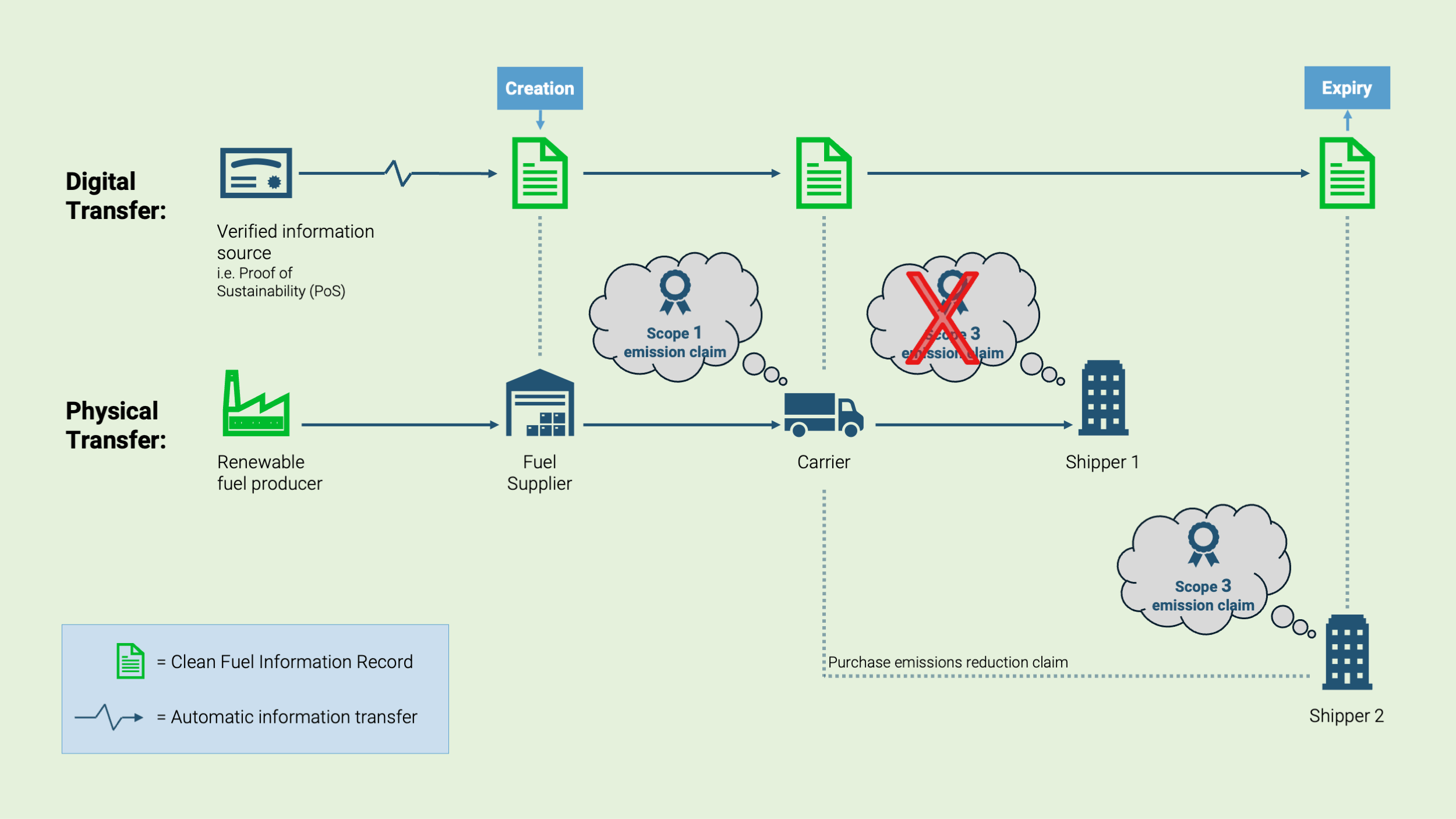There is the need for transparent information flows on the attributes of renewable fuels used in transport markets. Transport and logistics activities represent a significant source of greenhouse gas emissions related the products that consumers buy. Renewable fuels play a fundamental role in reducing these emissions. The Clean Fuel Contract Guidelines provides practical guidance to provide information about renewable fuels for end-users.
Information related to the sustainability characteristics of renewable fuels is becoming increasingly significant for actors at the end of the supply chain who would like to address their “Scope 3” emissions. This will be relevant in a voluntary market context and for meeting the requirements laid out in the Corporate Sustainability Reporting Directive (CSRD). In this research project, a Clean Fuel Contract system is designed which serves to meet the demand for transparent information from actors at the end of the supply chain. By ensuring that claims related to renewable fuels are traceable, unique, and relate to verified sources of information.
Building from a core set of emissions reporting principles developed in well-recognised international frameworks, a set of guiding principles are outlined related to Scope 3 claims on renewable fuels. A set of recommendations are provided for the practical implementation of a Clean Fuel Contract system in the Dutch context. This includes the design of a ‘Clean Fuel Information Record’, which could be used to digitally transfer information on renewable fuels to end users for the purpose of making Scope 3 claims. This concept will mainly work in conjunction with Distributed Ledger Technologies.
This report concludes a project conducted on behalf of the Nederlandse Organisatie Voor de Energiebranche (NOVE). Working together with the Dutch Platform Renewable Fuels (PHB), NOVE members have taken the initiative to improve transparency in the renewable fuel supply chain, Hence, the initiative for a Clean Fuel Contract system.
Read the full report here.




